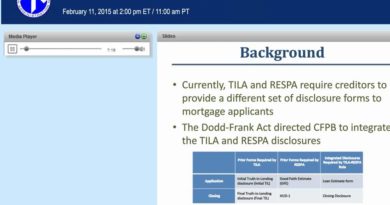Can I Obtain Security for Costs in an Issued Claim?
Legal costs will usually be an important factor and concern for parties involved in any court dispute. Not only do you want to focus on winning, but if/when you win you will understandably want to know your prospects of recovering legal costs from the opponent in due course. Our commercial, property and construction litigation teams regularly and routinely deal with these types of issues on behalf of clients at the very outset of any dispute.
Legal proceedings can quickly rack up substantial expenses, which the successful party usually seeks to recover from the losing party. However it might be that there is concern that if the losing party cannot or will not pay, you may not recover your costs even if the court orders the other side to pay them. Enter ‘Security for Costs’; a process where the court considers the risk of a delinquent non-payer, and orders security before trial or the outcome is known.
This article explains security for costs, who can apply, the grounds for applying, and the relevant procedure. For tailored advice, contact a member of our commercial, property or construction litigation teams at Helix Law today.
What Is Security for Costs?
Security for costs is a court order requiring one party to provide a financial guarantee to cover the other party’s legal fees if they lose the case. Typically, the Claimant is the subject of such orders, as providing this guarantee minimises the risk of them pursuing an unfounded claim without the need to pay up if they lose.
It allows Defendants to dispute claims fairly, with the assurance that their legal costs will be recovered if they win.
What Forms Can Security for Costs Take?
Security for costs varies, depending on the claimant’s financial circumstances. Defendants should conduct the necessary research into the Claimant’s situation to ensure the order they ask for is reasonable and accessible and is allowed in accordance with court rules.
Common types of security include:
- Cash Deposit: Held by the court or or the party’s solicitors. A solicitor will usually provide an undertaking (a legal promise) to confirm they hold the funds and will continue to do so until the case concludes.
- Legal Expenses Insurance:A legal expenses insurance policy that will pay out if the Claimant loses the case.
- Third-Party Undertaking: A third-party undertaking (or promise) to pay the relevant fees. It could include securing funding from a litigation funder, who receives a percentage of the award if the appropriate party is successful.
Who Can Apply for Security for Costs?
It is primarily the Defendant in litigation who can apply for such an order. This includes a Defendant to claim, a Claimant defending a counterclaim, and an Appellant or Respondent in appeal proceedings.
Additional defendants, whom the court adds to the claim later, may also apply for such an order.
Can Anyone Other Than the Claimant Be Required To Provide Security?
Yes. If the type of guarantee the Defendant seeks relates to third-party funding or insurance, that party will pay out instead of the Claimant.
If the Claimant company lacks funds, the Court might order its shareholders or parent company to provide a guarantee.
The Civil Procedure Rules (CPR) govern litigation. CPR Part 25.14 permits security against other parties if the following conditions apply:
- It is just to make such an order; and
- The relevant person has:
- assigned the claim to the Claimant to avoid the possibility of a costs order; or
- contributed or agreed to contribute to the Claimant’s costs in return for a share of any money or property which the Claimant may recover in proceedings; and
- they are a person against whom the court can make a costs order.
What Are the Grounds for Applying for Security?
CPR Part 25.13 lists the grounds for an application:
- the court must be satisfied that it is just to make the order; and
- the Claimant must:
- reside outside of England and Wales but not be resident in any state bound by the Hague Convention;
- be a company or other body, and there is reason to believe it won’t be able to pay the Defendant’s costs if necessary;
- have changed their address to avoid the consequences of litigation;
- have failed to provide their correct address in the claim form;
- be acting as a nominal Claimant (someone suing on behalf of another party), and there is reason to believe they won’t be able to pay the Defendant’s fees if necessary; or
- have taken steps concerning their assets, which would make it difficult to recover costs from them.
Applicants must provide evidence supporting at least one of the above grounds and it must be just for the court to grant the order. If more than one of the grounds is relevant, the defendant should highlight this in their application.
How Do You Apply for Security for Costs?
Applicants must file a Form N244 with the court and appending written evidence addressing the above grounds and a draft order detailing the terms of the security they’re asking for.
Evidence must identify the Claimant, explain why they fall within the above grounds, and persuade the court that it is fair to grant security. It should also specify the type of security the Defendant seeks, such as a cash deposit or bank guarantee.
Once the court issues the application, it usually schedules a hearing at which both parties submit their positions, and the court decides whether to make the order.
Frequently Asked Questions
Can a Claimant Get Security for Costs?
While less common, it is sometimes possible for a Claimant to get security for costs. If the Claimant faces a free-standing counterclaim, they may apply for such an order. The court may also make the order in favour of an appellant or respondent to an appeal on the same grounds.
Can you apply for further Security after a Security for Costs order has been made?
Where a Security for Costs order has been made, and a material change in the circumstances of the case occurs, the Applicant can apply for further security. For example, this may be because further work has been required as a result of the Respondent’s actions.
Final Thoughts
Security for costs is a useful tactical tool in litigation designed to protect parties from the financial risks associated with defending claims. By requiring a financial guarantee, the court ensures that successful parties can recover their legal expenses if the opposing party is unwilling or unable to pay. For a Claimant paying a sum (usually cash) into court will be painful, and this can be a useful way to pressure an opponent.
Whether you’re a defendant looking to protect yourself or a claimant seeking advice on how security for costs might impact your case, understanding the relevant grounds and procedure is essential for navigating this aspect of litigation effectively.
If you require assistance with making or defending a security for costs application, or if you want to better understand your options, contact our team of expert solicitors at Helix Law today. Our commercial litigation team will provide tailored advice to help protect your position and allow you to approach the process with confidence.






